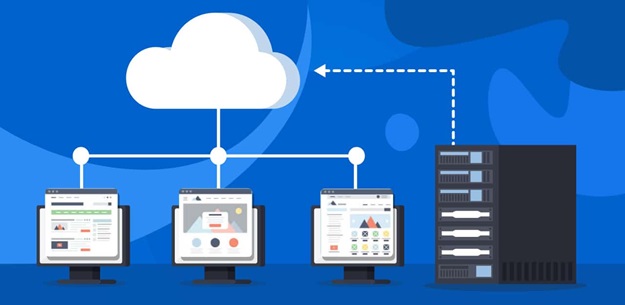Whenever people are looking to host their website, especially if they’re beginners or don’t have a huge budget, they tend to opt for a shared hosting plan. These plans can prove to be an affordable and easy-to-use option. Shared hosting services can also be a great choice thanks to their pocket-friendly plans and intuitive interface.
However, with the advancement of technology, more and more hackers are popping up onto the scene, and cyberattacks have become all the more prominent. This is why ensuring the proper safety and security of your shared hosting account is very important. In this article, we will take a look at the 6 best ways by which you can secure your shared hosting.
Is shared hosting insecure?
Shared hosting plans aren’t insecure in themselves. It is an ideal way to store your website, especially if you’re a beginner or your website hosting budget isn’t that high enough to afford VPS, dedicated, or cloud hosting. However, if your chosen web host doesn’t do enough to keep its servers secure and reliable, a shared hosting plan can prove to be a particularly dangerous option. This is so because all of the websites on a shared server make use of the same resources.
The best shared website hosting providers will certainly take special steps to ensure that their shared servers are secure. Therefore, you don’t have to sacrifice security solely because you’re paying a comparatively lower price.
Here are some of the tips you should keep an eye out for, especially when opting for a shared hosting plan, to ensure that your website/blog, and its contents, are safeguarded at all times.
Installing robust security features
One of the very first things you can do to safeguard your website is to put efficient security measures on your hosting account. Even though your hosting provider will certainly have a server firewall, some additional security will never harm anyone! Rather, it will go a long way in ensuring the required safety of your website/blog in the long run.
Besides incorporating an antivirus, you should also invest in the addition of anti-malware and anti-spyware softwares like SiteLock Website Security.
Regularly updating your security measures
No matter how many efficient security measures you incorporate for the protection of your website and its contents, they might all prove to be ineffective if not updated on a regular basis. You need to make sure that all your security applications and softwares stay updated so as to combat newer and more modern threats much more effectively.
The same concept applies to the plugins, themes, and other add-ons of your website. In addition to improved usability and new features, regular updates also seek to bring in important security patches that seal up potential breach points and vulnerabilities within the software.
Taking regular backups

The ultimate insurance against cyberattacks and potential threats are regular backups. In the event of your website going down owing to a cyberattack, you can always restore it using the latest backups available to you. However, this will only be effective as long as you take and maintain regular backups of your site.
Also, always ensure that you store your backups at a separate location that is secured, and not easily accessible by others. You can install automated backups solutions like CodeGuard with your shared website hosting plan. Anyways, it is always recommended that you keep a manual backup of every vital content within your shared hosting plan without fail. This is the bare minimum you should do!
Regulating user roles and permissions
The users of your website are among the ones most likely to breach points in order to gain an illegal and unauthorised entry into your system. Hence, always be extremely careful when it comes to allocating privileges and permissions to other users.
You can also put guidelines in place for using harder to crack, stronger passwords, and enable two factor authentication just to ensure that added bit of security.
Never give administrator privileges to everybody you know as a small mistake from any inexperienced user is going to be enough to bring down your whole website within a matter of a few seconds.
Avoiding untrusted sources
At times, in order to put out newer and more modern features and functionalities or simply to save additional costs, security measures take a backseat. Whenever you download software from an untrusted source or even install a “Free” version of a paid software or plugin, you run the risk of infecting your website or the entire server with a virus or any sort of malware.
Although it can be extremely tempting to get your hands on something cheap or even free of cost, as long as you know it’ll do the job for you; you should avoid suspicious freebies and untrusted sources.
Choosing a reliable shared hosting provider
Even though it might not seem extremely obvious, your shared hosting provider will always play a crucial role when it comes to the security of your website. Not every hosting provider enjoys a massive reputation or offers the same level of service to its users.
You should always carry out your research before you shortlist some of the best shared hosting providers that cater to you and your security requirements.
Read testimonials of verified users and businesses, understand their terms and conditions, and then lay your hands down on the one that pertains the most to you.
Understanding the security features a shared hosting plan offers, like free SSL certificates, additional softwares like SiteLock, and the ability to upgrade to a paid SSL, is something you should give paramount importance to.
Always ensure that you choose a reliable and trustworthy shared hosting provider that prioritizes your security besides everything else.
Final Words
Keeping in mind the urgency and emphasis attached to the security of your website/blog, securing your shared website hosting account might seem to be a daunting task. However, it becomes way easier when you have an idea regarding all that it entails. One great way to tackle the security measures of your shared hosting account is to split them up into smaller parts, and handle it one part at a time. Remember, a systematic approach is of primary importance in order to ensure the safety of your website.
In this article, a list of 6 essential guidelines have been clearly stated so that you can secure your shared hosting plan, and thereby your website, in the best way possible!
